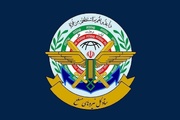During World War II, Germany's occupation, aggression, and crimes portrayed the country in a negative light. Germany was seen as the epitome of racism, murder, occupation, cruelty, and dictatorship. After the war, Germany implemented successful policies to improve its image and change the world's perception.
Germany has abandoned militarism, racism, and interference in the affairs of other countries. Instead, they have adopted a positive policy towards the world. This policy encompasses public relations, diplomacy, and propaganda, as well as more serious and deeper areas.
Germany has devoted considerable attention to the United Nations and international dispute resolution mechanisms, as well as the advancement and strengthening of international cooperation. This is evident in its substantial financial support for the United Nations and other international organizations.
Germany has consistently been a major financial contributor to the United Nations and has been very generous in this regard. In its bilateral relations with other countries, particularly those in the South, Germany has followed a similar path by offering financial and technical assistance and has strived to avoid taking harsh or unfriendly positions against these countries whenever possible.
This policy transformed Germany into a more compassionate and benevolent power in contrast to other Western powers, such as Britain and France. This new perception of Germany became widespread in numerous parts of the world, particularly in the Middle East and Iran.
Germany's efforts to restore its international position and image extended beyond economic and diplomatic concerns to encompass vital areas such as education. In line with this strategy, the German government developed an educational program for schools and institutions to cultivate a global perspective, promote understanding, and encourage respect for others rather than fostering racism and nationalist sentiments.
From the perspective of a Middle Eastern citizen, there was a problem with Germany's approach, regarding their perceived unfair kindness and leniency towards the behavior of Israel and Zionism. The German government avoided criticizing the Zionist regime at all stages, even at times when the criminal behavior of the Zionist regime would anger Western governments. This was attributed to Germany's history in World War II and the Holocaust. Germany's guilt over the threat of the murder of Jews and its efforts to compensate for it were the main reasons for this hesitation and inaction in the face of Israel's actions.
This approach did not significantly distort Germany's overall positive image in the Middle East, but the German government's position on the killing of Palestinians in Gaza has taken on a new unusual dimension after the recent events in the Middle East, following October 7.
Based on such positions, Germany's case against Israel's crimes in Gaza can be considered the worst example in Europe. In these unilateral positions, Israel is supported in an unprecedented way, and the crimes of this regime in Gaza, the genocide of the Palestinians, and the violation of their inalienable rights are ignored.
The German government has imposed strict restrictions on popular movements in defense of the Palestinian people and criticism of Israel within the country. Many consider these restrictions to be unique and the most severe among all Western countries. This goes against the values of freedom, human rights, and democracy and has sparked international criticism.
In recent events, there have been disturbing reports of German authorities supporting the Zionist regime by violently suppressing pro-Palestinian demonstrations in German cities. The German police have been reported to use brutal force to suppress peaceful demonstrations and brutally attack the demonstrators.
The images depicting these scenes are shocking and unbelievable, and they do not align with Germany's modern history and reputation in these issues. These scenes, resembling the suppression of dissent in dictatorial and fascist countries, have prompted Amnesty International to protest.
The Middle East observers find it incomprehensible why, after a lifetime of successful policies presenting a humane, kind, and peaceful image of the country, Germany has put its credibility in danger. The continuation of this wrong policy against the Middle East can destroy Germany's positive image in the Third World and the Middle East in general, and give it a negative image, even worse than other Western powers.
AMK

























Your Comment